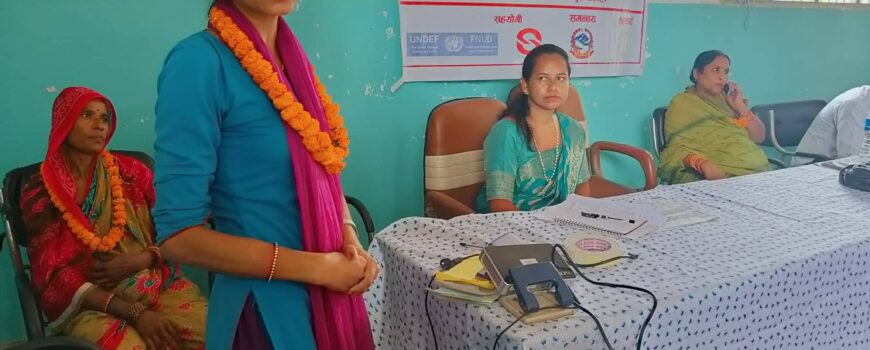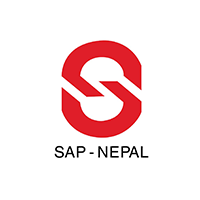
In the first round, 4 interactions were conducted by WoMEF in 4 municipalities under the title “Consultation and coordination interaction program for policy advocacy” on 8, 12,14 and 15 September at Chandranagar, Haripur, Barathawa and Basbariya Municipalities respectively with the participation of 46, 65, 50 and 42 participants respectively. The program was attended by the WoMEF members, elected people’s representatives, head of government agencies, media workers, and local leaders. The main objective of the first round of the municipal level policy discussion was to discuss the policy and practice gaps undermining representation of Musahar women in local governance process with multi-stakeholders including government officials, public service providers, civil society organizations, and media at local level for adequate joint advocacy for favorable policy intervention.
The event was facilitated by the local expert Pachu Lal Majhi who prepared and presented the policy brief and citizen report card assessment report based on his research. In the event, the project and event objective was highlighted by Janak karki (Project Coordinator, SAP Nepal). He said that more than 80% of Musahars have no knowledge of the local budget and program. He also added that most of the Musahar children are not able to go to school because they do not have a birth registration certificate. Musahars are deprived of all government service facilities due to the fact that despite of living here for three generations they are not provided with citizenship certificates and their vital registrations are also not recorded, he added. Dalit leader Pachu Majhi stated that, there is no participation of Musahar community is any program and budget spent by the local government in the fiscal year 2075/76 and 2078/79 based on the report prepared through analysis of program and budget of last 3 years of Haripur Municipality. Analysis of program and budget of fiscal year 2078/79 of local government of Terai Madesh also shows that it has failed to reach or benefit backward Musahar community, he added.
Regarding, women’s participation in planning and implementation of village plans and programs, programs conducted for women’s capacity development; according to the survey, women’s representation in local management committees such as drinking water consumer committee, school management committee, and consumer committee is zero. A survey was conducted through group discussion and Key Informant Interview (KII) with leaders of women’s groups, as well as KII with heads and representatives of various government agencies.
The presentation was followed by the experience sharing by few members of WoMEF of respective municipalities and Q/A session by the WoMEF to the locally elected representatives in each of the municipalities. Towards the end of the program, the head of the respective municipalities appreciated SAP Nepal’s contribution to the development of Musahar community and committed to provide every support possible for the upliftment of the Musahar community.

